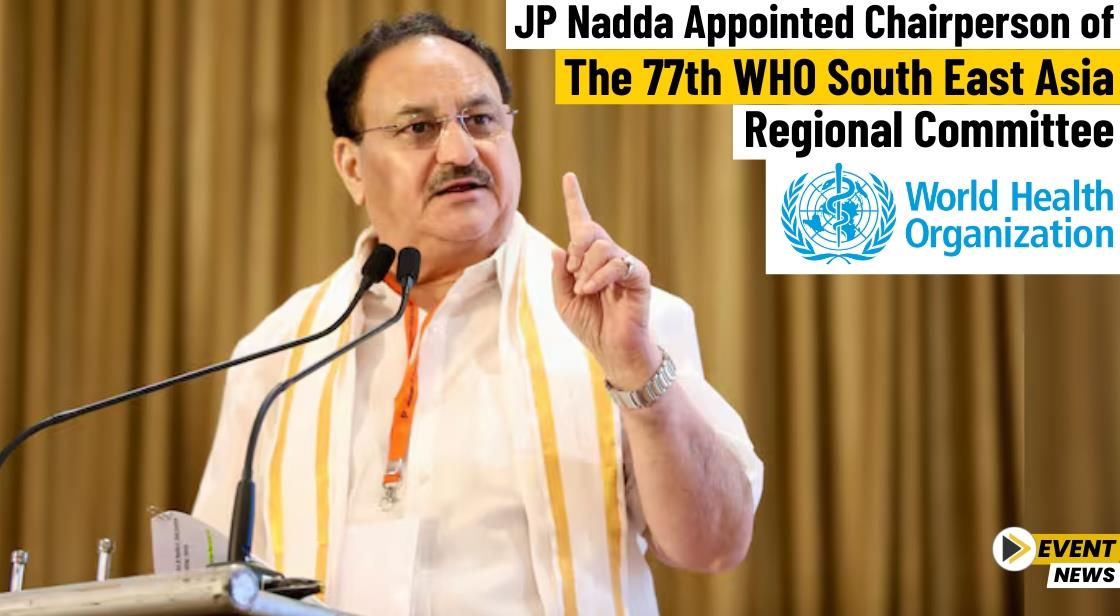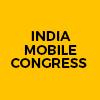JP Nadda Appointed Chairperson of the 77th WHO South East Asia Regional Committee

News Synopsis
The World Health Organization (WHO) has commenced its 77th session of the Regional Committee for Southeast Asia in New Delhi from October 7 to 9. This significant gathering brings together health ministers and delegates from member countries to discuss pressing public health challenges and solutions for the region.
Leadership Appointment: JP Nadda as Chairperson
India's Minister of Health, JP Nadda, has been elected as the Chairperson of the 77th Session. His leadership will guide discussions aimed at strengthening public health strategies and enhancing collaboration among member states.
Overview of the Regional Committee Session
The 77th Regional Committee Session (RC77) is the annual governing body meeting for WHO in Southeast Asia. This committee comprises member nations including Bangladesh, Bhutan, the Democratic People's Republic of Korea, India, Indonesia, the Maldives, Myanmar, Nepal, Sri Lanka, Thailand, and Timor-Leste. The session serves as a platform for health officials to deliberate on key priorities and actions for improving accessible public health across the region.
Focus on Public Health Priorities
Ministers of health and delegates from the member states have gathered in Delhi to engage in crucial discussions about health challenges and potential solutions. With over a quarter of the world's population residing in this region, the focus is on building a healthier future for nearly two billion people.
Addressing Emerging Challenges
During the session, Razia Pendse, Chef de Cabinet of the WHO, outlined several challenges confronting the region. These challenges include:
-
Growing Burden of Non-Communicable Diseases: An increase in lifestyle-related health issues.
-
Mental Health Concerns: Rising mental health disorders necessitating attention and resources.
-
Neonatal and Under-5 Mortality Rates: Efforts to reduce mortality rates among infants and young children.
-
Antimicrobial Resistance: A pressing threat that requires collective action.
-
Ongoing Burden of Tuberculosis: Continued efforts to combat this infectious disease.
Nadda's Inaugural Address: A Call for Collaboration
In his inaugural speech, JP Nadda emphasized the importance of a collaborative approach to health. He stated, "Health transcends borders, necessitating a holistic and collaborative approach. By learning from each other's successes and challenges, we can enhance the resilience of health systems." His remarks highlight the need for unity and shared responsibility among nations in addressing public health issues.
Saima Wazed on Regional Roadmap
Saima Wazed, WHO's Regional Director for Southeast Asia, stressed the importance of having a regional roadmap to guide health initiatives. She articulated, "The regional roadmap belongs to all our countries and all our peoples. We feel the duty to protect the weak, the vulnerable, the orphan child, the disabled, and the elderly with no family." This statement underscores the commitment to ensuring that marginalized groups receive adequate healthcare and support.
Proposed Technical Programs and Tactical Approaches
Under Saima Wazed's leadership, WHO SEARO (South-East Asia Regional Office) has proposed several technical programs and tactical priorities. These include:
-
Emergency Response and Pandemic Preparedness: Enhancing readiness for health emergencies.
-
Resource Mobilization: Securing necessary resources to support health initiatives.
-
Climate Change and Health: Addressing the impacts of climate change on public health.
-
Universal Health Coverage: Ensuring that all individuals have access to essential health services.
In-Depth Discussions Over Three Days
The three-day meeting will delve into these critical issues, allowing member states to share insights and develop strategies for implementation. The collaborative environment encourages dialogue and innovation, fostering a collective approach to solving regional health challenges.
Harnessing Collaboration and Innovation
Nadda concluded his address with a powerful message: "Let us harness the power of collaboration, innovation, and solidarity to transform the health landscape of Southeast Asia and build a healthier and brighter future for all." His vision sets an ambitious goal for the region, encouraging all stakeholders to work together in improving health outcomes.
Conclusion: A Step Towards a Healthier Future
The 77th session of the WHO Regional Committee for Southeast Asia marks a pivotal moment in the region's health journey. By addressing pressing health issues and fostering collaboration, member states aim to build resilient health systems and enhance the well-being of millions. The discussions and strategies developed during this session will play a crucial role in shaping the future of public health in Southeast Asia.
Disclaimer
This post has been auto-published from an agency feed without any modifications to the text and has not been reviewed by an editor.









